Related Research Articles
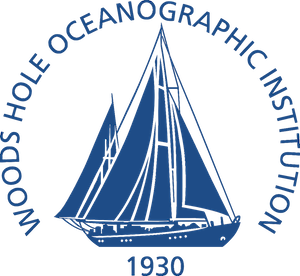
The Woods Hole Oceanographic Institution is a private, nonprofit research and higher education facility dedicated to the study of marine science and engineering.
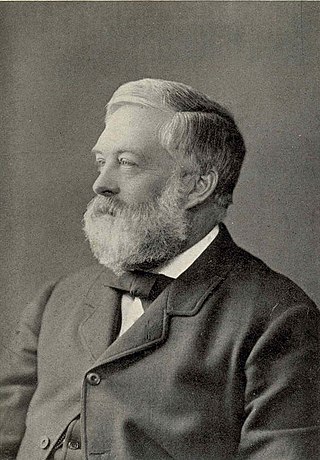
Sir Charles Wyville Thomson was a Scottish natural historian and marine zoologist. He served as the chief scientist on the Challenger expedition; his work there revolutionized oceanography and led to his being knighted.

Frederick Sydney Dainton, Baron Dainton, Kt, FRS, FRSE was a British academic chemist and university administrator.
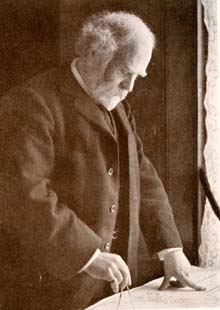
Sir John Murray was a pioneering Canadian-born British oceanographer, marine biologist and limnologist. He is considered to be the father of modern oceanography.

Mary Sears was a commander in the United States Naval Reserve and an oceanographer at the Woods Hole Oceanographic Institution (WHOI).

Henry Melson Stommel was a major contributor to the field of physical oceanography. Beginning in the 1940s, he advanced theories about global ocean circulation patterns and the behavior of the Gulf Stream that form the basis of physical oceanography today. Widely recognized as one of the most influential and productive oceanographers of his time, Stommel was both a groundbreaking theoretician and an astute, seagoing observer.

Sir John Macleod Ball is a British mathematician and former Sedleian Professor of Natural Philosophy at the University of Oxford. He was the president of the International Mathematical Union from 2003 to 2006 and a Fellow of Queen's College, Oxford.
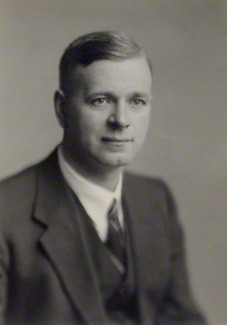
Sir George Edward Raven Deacon CBE FRS FRSE was a British oceanographer and chemist.

Sir William Abbott Herdman FRS FRSE FLS was a Scottish marine zoologist and oceanographer.

Michael Selwyn Longuet-Higgins FRS was a British mathematician and oceanographer at the Department of Applied Mathematics and Theoretical Physics (DAMTP), Cambridge University, England and Institute for Nonlinear Science, University of California, San Diego, USA. He was the younger brother of H. Christopher Longuet-Higgins.
John Crossley Swallow FRS was an English oceanographer who invented the Swallow float, a scientific drifting bottle based on the messages in bottles that shipwrecked sailors hoped would reach inhabited shores, summoning assistance.
James Pickering Kendall FRS FRSE was a British chemist.
Harry Leonard Bryden, FRS is an American physical oceanographer, professor at University of Southampton, and staff at the National Oceanography Centre, Southampton. He is best known for his work in ocean circulation and in the role of the ocean in the Earth's climate.
Johnson Robin ('Joe') Cann FRS is a British geologist.
Columbus O'Donnell Iselin (1904–1971) was an American oceanographer. He was the director of the Woods Hole Oceanographic Institution from 1940 to 1950, and from 1956 to 1960. He was Professor of Physical Oceanography at Harvard University and the Massachusetts Institute of Technology (MIT).
Kenneth "Ken" Owen Buesseler is an American marine radiochemist. He is a senior scientist at the Woods Hole Oceanographic Institution.
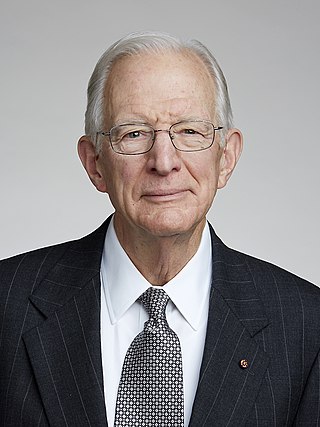
John Michael Hayes was an American oceanographer. He worked at Indiana University Bloomington, and Woods Hole Oceanographic Institution in Woods Hole, Massachusetts.

Julie Huber is a Senior Scientist in the Marine Chemistry and Geochemistry department at Woods Hole Oceanographic Institution. She previously was an associate professor of ecology and evolutionary biology at Brown University, an associate scientist at the Marine Biological Laboratory in Woods Hole, Massachusetts, and the associate director of the MBL's Josephine Bay Paul Center for Comparative Molecular Biology and Evolution. She also serves as the associate director of the Center for Dark Energy Biosphere Investigations, a National Science Foundation-supported program headquartered at the University of Southern California.
Andrew Picken Orr FRSE ARIC (1898–1962) was a 20th-century Scottish oceanographer and was an expert on phytoplankton and copepod biology.
Kenneth Orris Emery (1914–1998) was a Canadian-born American marine geologist.
References
- 1 2 3 4 5 6 7 8 9 "John Steele - obituary". The Telegraph. 27 January 2014. Retrieved 13 February 2014.
- ↑ Lawrence, J M (4 December 2013). "John H. Steele, 86, of Falmouth; oceanographer formerly directed Woods Hole Oceanographic Institution". The Boston Globe. Retrieved 13 February 2014.
- 1 2 3 4 5 6 7 "Dr John Hyslop Steele FRS FRSE" (PDF). The Royal Society of Edinburgh. 28 October 2016. Retrieved 9 July 2021.